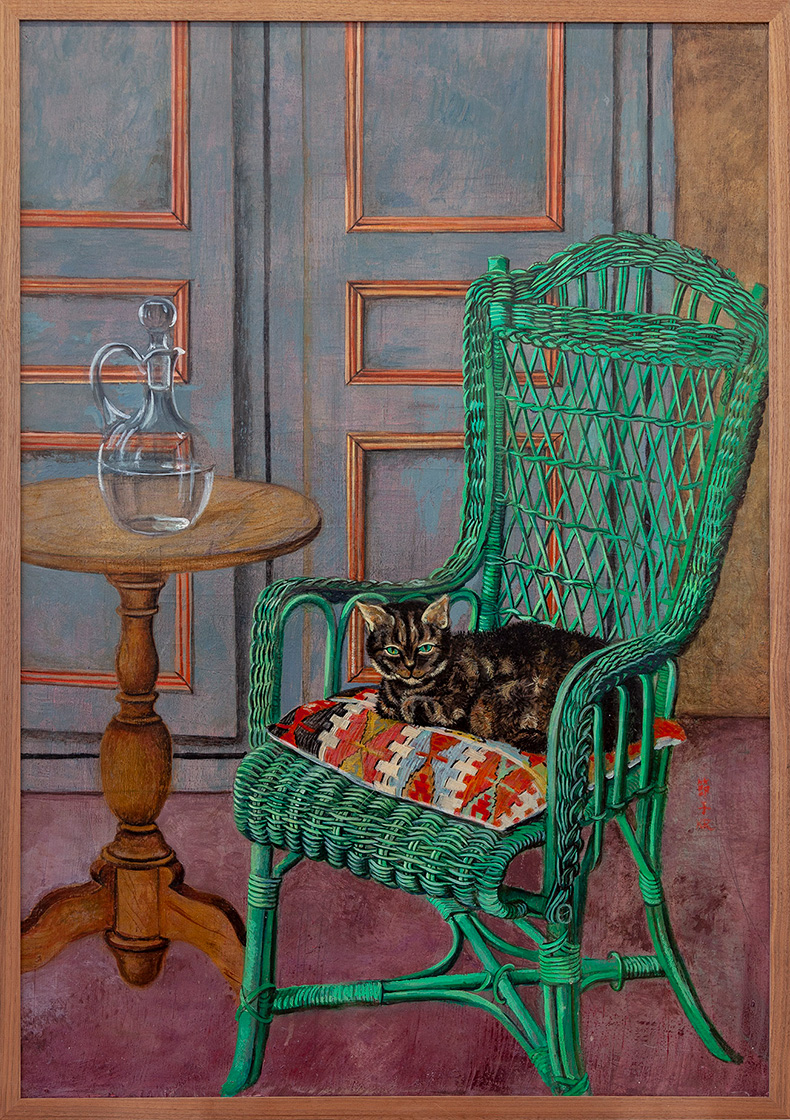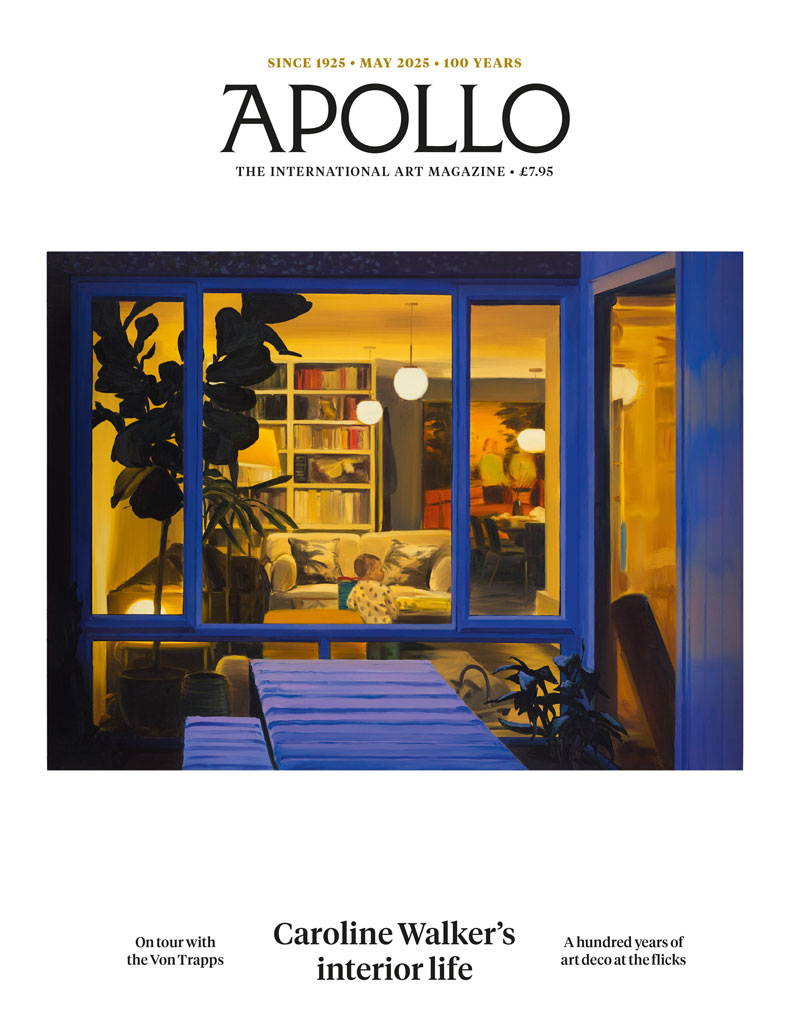The Japanese artist Setsuko Klossowska de Rola – more commonly known as Setsuko – fuses traditional Japanese craft with modernist European aesthetics. Inspired by natural forms and textures, the artist’s delicate ceramics take the form of ripe fruits, blooming flowers, grapevines and gnarled trees while her paintings render still-life assemblages of everyday objects in intimate domestic spaces. ‘In Japan, many traditional ceremonies take place in the forest and old trees are considered sacred. So when I make a tree, I do it with gratitude. As I make it I’m thanking it for letting me make it,’ she has said. Her latest exhibition, ‘Into the Trees II’, at Gagosian in Rome brings together a collection of ceramic, bronze and wood sculptures as well as recent works on paper and paintings from throughout her career.
Where is your studio?
In Paris, in a very famous ceramic factory called Astier de Villatte. I knew the owner [Benoît Astier de Villatte] when he was a baby at the Villa Medici French academy where my husband, Balthus, was director. Many years later, I called into [Benoît’s] shop in Paris and was enchanted; it felt quite natural that we would collaborate together. He gave me a very nice space as a studio, within their workshops where there are more than 100 Tibetan artisans working. Benoît and his business partner Ivan are Tibetan Buddhists, you see, and there are Tibetan monks singing or doing prayer. It’s such a peaceful atmosphere right in the middle of the modern world. I feel a sort of serenity and kindness when I’m there. My studio, though, is just for me and it has a private dining room where I can host friends or clients for lunch.
Do you follow a particular routine when you’re in the studio?
I start the day with a special kind of Japanese tea, or sometimes [hot] chocolate which I bring from Switzerland, or coffee. There’s a very good coffee machine there. I also make a light breakfast in the studio and then I start working.

Magnolia I (2022), Setsuko. Photo: Thomas Lannes; courtesy Gagosian; © Setsuko
Does anything frustrate you about the space?
No, I really cannot imagine a better studio. I am lucky to have a very good assistant too.
Do you listen to anything while you work?
I don’t listen to anything here because I sometimes need to work with another person to make my works as some of them, such as the tree sculptures, are very big. And the atmosphere is very alive. My studio is closed but I’m aware that there are lots of people around. In Switzerland, though, where I have a studio for painting, I love to listen to music.
How does your studio in Switzerland compare to the one in Paris?
The studio in Switzerland is in my house, an old wooden chalet. It’s all very 18th century. I have a piano in the studio and my grandchildren wander in and out to play it, which I love. In Paris I can maybe concentrate more on my work, but I spend longer amounts of time in Switzerland.

Chat assis sur fauteuil en osier vert (1996–97), Setsuko. Photo: Zarko Vijatovic; courtesy Gagosian; © Setsuko
What’s the strangest object in your studio?
The strangest object is a special order from South Korea. It’s a ceramic sculpture of a tiger and a rabbit. The tiger is smoking a very long pipe, but [the piece] was exposed in the oven so it’s actually broken. I’ve also kept some of the branches from a large tree I made, which were also exposed in the oven. It created forms which are very interesting and beautiful to me, it looks like [the branches of a tree] after a flood or typhoon.
How messy is your studio?
I try to be tidy, but my working table is never very tidy. It’s covered with lots of documents, brushes and colours.

Chandelier (grenadier) (2019), Setsuko. Photo: Thomas Lannes; courtesy Gagosian; © Setsuko
What are you currently reading?
I’m currently reading a book about the German architect [Bruno] Taut who was in Japan before the war, but my favourite writer is Oscar Wilde. I especially love his writing about art. There is so much strength in his words, which I find very encouraging.
Who’s the most interesting visitor you’ve had to your studio?
The wife of the former French President Nicolas Sarkozy, Carla Bruni-Sarkozy, came to see my studio and the factory with her friend. I was surprised by how excited the Tibetans were to meet her and couldn’t understand why that would be, but then, one of them explained to me that when the Dalai Lama visited France the President didn’t receive him but his wife did. When she arrived, they completely surrounded her. I was happy to see how happy they were.
‘Setsuko: Into the Trees II’ is at Gagosian, Rome until 29 October.














![Masterpiece [Re]discovery 2022. Photo: Ben Fisher Photography, courtesy of Masterpiece London](http://zephr.apollo-magazine.com/wp-content/uploads/2022/07/MPL2022_4263.jpg)
Suzanne Valadon’s shifting gaze